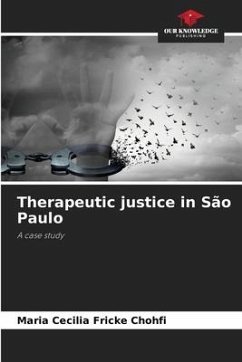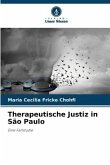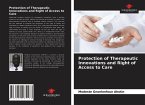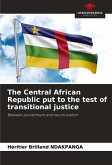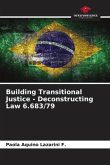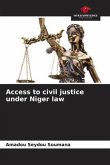This book has as its research object the interface between drug addiction and criminality, from a look at the City of São Paulo. An increasing number of people who commit some crime as a way to get money to use narcotic substances, or because they have used narcotic substances, end up committing crimes, which leads us to think about the relationship between the user of psychoactive substances and criminal practice, hence the need to implement the Therapeutic Justice, a partnership between Justice and Health, a type of treatment directed to the authors of illegal acts of less offensive potential, associated with the consumption of narcotic substances. It is already a benefit of the Law, in which the user, instead of serving time, commits to a treatment monitored by the judiciary. In historical terms, it is still a very recent modality in Brazil, it began to be implemented in Rio Grande do Sul in 1999, and has been extended to other Brazilian states, such as Rio de Janeiro, Recife,and others. In São Paulo, it started in 2002/2003 in the Santana Forum, an action initiated by the Public Ministry, by the prosecutor Dr. Mário Sergio Sobrinho.
Bitte wählen Sie Ihr Anliegen aus.
Rechnungen
Retourenschein anfordern
Bestellstatus
Storno

